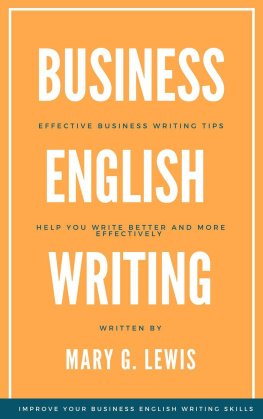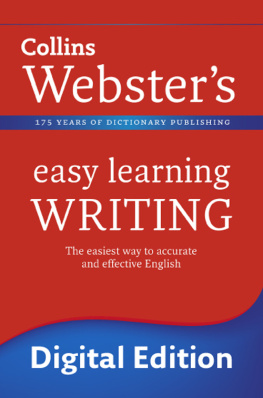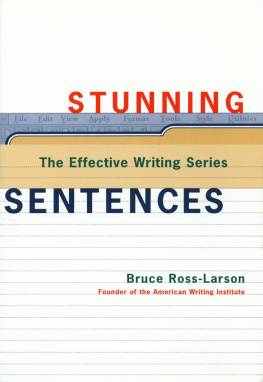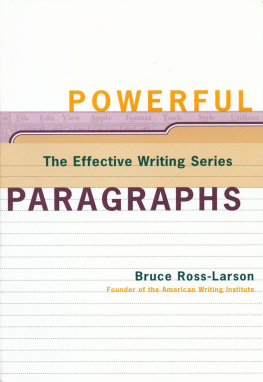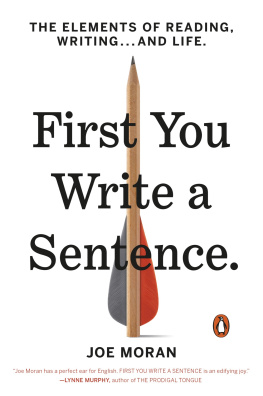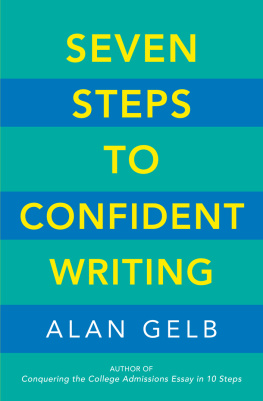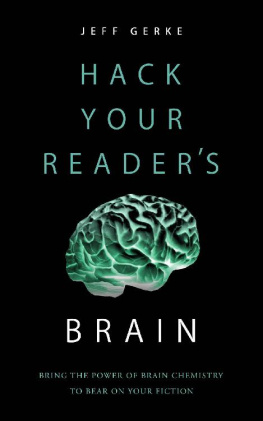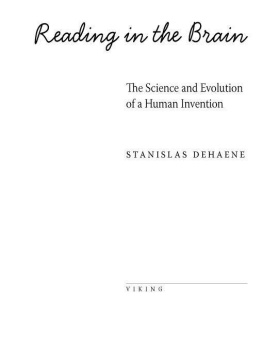Have you ever found yourself rereading the same sentence four or five times and thought, I should get more sleep? Are you clueless as to why one paragraph just seems to flow while you simply cant recall the contents of another? Guess what: you are not alone. Even the best writers fail to grasp why their writing works. The Reader's Brain is the first science-based guide to writing, employing cutting-edge research on how our minds process written language, to ensure your writing can be read quickly, assimilated easily, and recalled precisely exactly what we need to transform anyone into a highly effective writer. Using the five Cs clarity, continuity, coherence, concision, and cadence this book combines irreverent humor with easy-to-follow principles that will make readers perceive your sentences, paragraphs, and documents to be clear, concise, and effective.
Yellowlees Douglas is Associate Professor of Management Communication at the University of Florida.
Clinical and Translational Science Institute and Center for Management Communication, University of Florida

University Printing House, Cambridge CB2 8BS, United Kingdom
Cambridge University Press is part of the University of Cambridge.
It furthers the University's mission by disseminating knowledge in the pursuit of education, learning and research at the highest international levels of excellence.
www.cambridge.org
Information on this title: www.cambridge.org/thereadersbrain
Yellowlees Douglas 2015
This publication is in copyright. Subject to statutory exception and to the provisions of relevant collective licensing agreements, no reproduction of any part may take place without the written permission of Cambridge University Press.
First published 2015
Printed in the United Kingdom by TJ International Ltd. Padstow Cornwall
A catalogue record for this publication is available from the British Library
Library of Congress Cataloguing in Publication data
Douglas, J. Yellowlees, 1962
The reader's brain : how neuroscience can make you a better writer /
Yellowlees Douglas, Ph.D. Clinical and Translational Science Institute and
Center for Management Communication University of Florida.
pages cm
Includes bibliographical references and index.
ISBN 978-1-107-10039-8 (hardback : alk. paper)
ISBN 978-1-107-49650-7 (paperback : alk. paper)
1. Reading Psychology. I. Title.
BF456.R2D677 2015808.0019 dc23 2015003341
ISBN 978-1-107-10039-8 Hardback
ISBN 978-1-107-49650-7 Paperback
Cambridge University Press has no responsibility for the persistence or accuracy of URLs for external or third-party internet websites referred to in this publication, and does not guarantee that any content on such websites is, or will remain, accurate or appropriate.
For my tireless, endlessly proactive, and visionary acquisitions editor Rebecca Taylor at Cambridge University Press. Without her interventions, this book would have been consigned to oblivion or Amazon's Create Space.
Contents
Acknowledgments
From the outset, Ive silently thanked my initial round of anonymous psychologists, linguists, and neuroscientists, who provided spot-on advice on shifting the focus of The Reader's Brain without a smidgen of the usual squeamishness academics exhibit at a reader-friendly approach in academic writing. Dr. Kenneth Heilman graciously provided me with a compelling narrative about a stroke patient, as well as references to two cases that proved integral to my thinking about writing, cadence, and the brain. And my credibility here wouldve been shot without the eagle eyes and superb suggestions for revision I received from Professors Gordon Pradl and Norman Holland. Both dramatically influenced the sensible side of my career and saved my bacon here. Finally, I owe an incalculable debt to Professor Sherrilene Classen, whose timely email enquiring after the availability of this book prompted me to submit the proposal one last time, after a decade of rejections. Without the enthusiasm both she and Rebecca Taylor displayed for the manuscript, this book would never have ended up in your hands.
Chapter 1 So much advice, so much lousy writing
Most people shun writing the way any chordate instinctively shuns pain. The task of writing is inescapably labor-intensive, no matter how facile a writer you are. Every blank page demands its lines of coherent sentences and cohesive paragraphs that ultimately amount to something like a rational, convincing argument. But our fear of writing reaches far beyond the hours we know well sweat over a keyboard, colonizing our blank screens with words. Instead, most of us are less afraid of the hard work than of grappling for hours with a complex system whose working parts we barely know. As a professor who has taught writing for more years than Id care to publicly admit, Ive heard thousands of confessions that gush out of students. Im a terrible writer , they confess. Or, Writings my major weakness . Strikingly, the majority of students who make these confessions are fairly strong writers just as the students who assure me that theyre good writers tend to create fresh paragraphs whenever they feel the reader needs to see a bit of white space, rather than from any sense of a paragraph as a coherent entity. Obviously, some sort of odd phenomenon must be at work here, when college students and even seasoned professionals have no idea whether their writing skills are adequate for a stringer position on the New York Times or barely pass muster as a child reporter writing for the East Palatka Elementary Gazette . Try making a similar analogy for reading or analytical skills, and youll discover most people have a sound grasp of their abilities in these areas. But when the discussion turns to writing, a disconcerting number of us find ourselves at sea.
Three aspects of writing: micro, macro, middle
We struggle to even assess our writing ability because writing itself is inherently complex. Most forms of writing demand simultaneous attention to along with at least some tenuous mastery of three aspects of writing: argument, correct usage, and the constituents that make for clear, effective sentences and paragraphs. Unfortunately, the first two items have reaped all the press. Aristotle began a venerable, millennia-long history of writings on argument that continue today in classrooms the world over, despite Aristotelian notions of argument applying strictly to lengthy orations that ran to hours and were aimed at illiterate audiences with vastly different expectations and needs than any audience alive today. And, of course, the usage and correctness mavens are, as Christ described the poor, always with us from the likes of H. W. Fowler through to William Bennett. But Fowler was a public school master, Bennett, a former Secretary of Education, and John Simon, another outspoken grammar maven, is a film critic. All of which proves you dont need any bona fide credentials as a linguist or researcher dedicated to the study of English to be a grammar maven just muscular opinions about subjects like the correct use of less as opposed to fewer . You can master the art of using the colon correctly one of the more recherch rules in the grammar canon and also be on intimate terms with the difference between logos and pathos and even recognize an exordium when you see one, yet still write about as clearly as Forrest Gump. Why? Between the macro side of writing the features of argument and the micro side with its grammar and punctuation exists a vast middle ground, where virtually all the grunt work of writing occurs.


